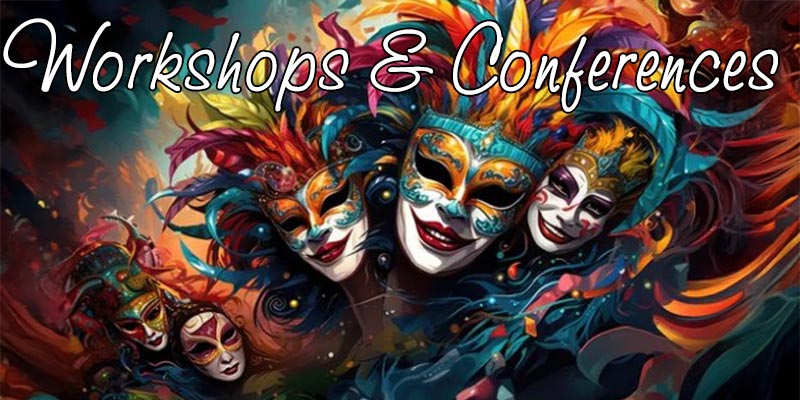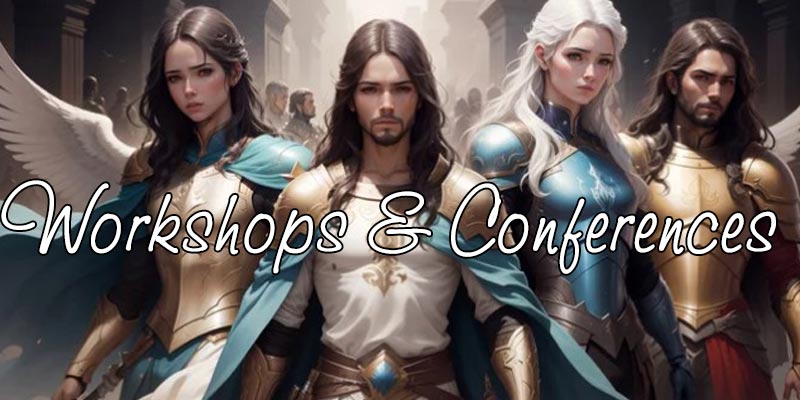
The site for writers of all genre, and the readers who love them. Find what you want to know.
What Is Head-Hopping?

By: Amanda Patterson
WritersWrite.co.za
A great article from the Writers Write – check out their Facebook Page.
In this post, we look at the problem with head-hopping when you write.
What Is Head-Hopping?
Head-hopping occurs when we change viewpoint (or point of view) in the middle of a scene. The rule is that you only have one viewpoint in a scene.
When we write fiction, we write it from a specific viewpoint. We normally choose one (or more) of the four main characters‘ points of view to filter our story. In most fiction we read through the eyes of the protagonist and one or two other characters. Carefully chosen viewpoint characters help you avoid confusing readers.
Tip: It only occurs when you are writing in third person and you jump from one character’s thoughts and actions to another’s. In first person you only use the ‘I’ so this should not be a problem.
Example:
Shelley looked at Dave sitting motionless across the table. She wondered if he knew how much she hated him. It was getting dark outside and it somehow seemed fitting for this conversation. Why was she always so cynical? Dave really wanted to know.
There had always been so much love between them. When did that end?
Problem: We don’t know who is thinking the last two sentences. It could be in either of the characters. Just choose one of them and tell the story through their viewpoint. You can show how the other person is feeling by their words, body language, and actions.
Why Should I Avoid It?
Head-hopping is jarring and confusing. At the beginning of a scene, we are reading through the eyes of a character. We are comfortable with this. If we suddenly jump into another character’s head, our readers have to jump with us and they have to get used to the new character’s thoughts and actions. Then we usually switch back to the first character – and the reader doesn’t know whose viewpoint they’re in. It makes it more difficult for a reader – and you never want to do that.
Readers must feel they know what is going on at all times, and having to jump back and forth will confuse them.
You can have three viewpoints in a novel, and be successful if you give them their own scenes. For example, in a police procedural, you would have your lead detective as the main viewpoint character. The second viewpoint character is normally another detective who works under them. They have viewpoint scenes as well when they think about the protagonist and what’s happening in the story.
The majority of scenes should be in your main character’s point of view. If you have a book of 80 scenes, about 60 of those should be in the main character’s viewpoint. The remaining 20 scenes can be told from another character’s perspective. Remember this is only a guide to help you work out how your story will be told.
The Last Word
Don’t head-hop. It is disconcerting and disorienting for the reader. Your book will flow more if you stay in one character’s viewpoint in a scene.
AGENTS & EDITORS
- Agents: Knowing When To Hold One and When To Fold
- Copyright Primer, Know Your Rights
- Getting Offers from Multiple Literary Agents
- Landing An Agent Elements Of A Winning Query
- Literary Agents List
- Preditors and Editors
- Publishing, Writing Terms, Acronyms
- Tips for a Successful Editor Appointment
- Want More? Here’s How to Get It
- What NOT to Do When Beginning Your Novel
- Windup for the (Story) Pitch
- Write the Perfect Book Proposal
CALLS FOR SUBMISSIONS
![]()
CALLS FOR SUBMISSIONS MAIN PAGE
- 2026 FEB Calls for Submissions
- 2026 JAN Calls for Submissions
- 2025 DEC Calls for Submissions
- 2025 NOV Calls for Submissions
- 2025 OCT Calls for Submissions
- 2025 SEP Calls for Submission
- 2025 AUG Calls for Submission
- 2025 JUL Calls for Submission
- 2025 JUN Calls for Submission
- 2025 MAY Calls for Submission
- 2025 APR Calls for Submission
- 2025 MAR Calls for Submission
- 2025 FEB Calls for Submission
CHARACTERIZATION
CONFLICT
DIALOGUE
GRAMMAR & FORMATTING
![]()
GRAMMAR & FORMATTING MAIN PAGE
- Achieving 250 Words / 25 Lines Per Page
- And Sammy, Too? Oh, No!
- Changing Double Hyphens to EM Dashes in Word
- Edit Easier
- High Hopes–Avoiding Common Mistakes
- Misused Words
- Navigating In Your Novel
- Proofreaders Marks
- Research Links
- Rules for Writers
- Slang and Jargon Souces
- Tightening Your Manuscript and Trimming the Word Count
JOBS / MARKETS
- 3 Ways to Make Your Non-Fiction Article Pitch Stand Out
- 35 Online Work Ideas to Earn Good Money Whilst Studying
- An Interview with Holly Ambrose
- Beyond the Basics
- Copyright Primer, Know Your Rights
- Finding Markets Fiction and Nonfiction
- Freelance Writing 101
- Getting Offers from Multiple Literary Agents
- How To Market Your Book After You’ve Written It
- How to Write a Novel Synopsis
- How To Write Your Own Press Releases
- Magazine Links
- Making Money As a Corporate Freelancer
- Market News–All Genres
- Need a Clip? Open a Newspaper
- Newspaper Writing Resources
- Publisher’s Websites
- Selling to Children’s Markets
- Submitting to UK Markets
- Syndication 101
- the Power of the Press
- To Specialize, or Not to Specialize?
- Ultimate Guide to Being a Freelancer 2025 Update
- What Are Your Chances of Getting Published?
- Why Article Writing Should Be A Part Of Your Career Development Strategy
- Why E-Books?
- Write the Perfect Book Proposal
- Write Your Way to $1000 a Month
- Youth Writing Markets
PLOTTING
- 3 Ways to Know When to End Your Chapters
- 7 Excellent Plotting Tips from Agatha Christie
- 7 Ways to Add Great Subplots to Your Novel
- 8 Best Writing Tips to Become a Best Storyteller
- Does Your Plot Need a Subplot?
- Love to Write: Here Is How You Can Build Your Career
- Slang and Jargon Souces
- The All Purpose Plot
- Turning Points and Plot Points in Storytelling
- What NOT to Do When Beginning Your Novel
- Writing the Novel by the Numbers
POINT OF VIEW
QUERIES & PROPOSALS
- Agents: Knowing When To Hold One and When To Fold
- Getting Offers from Multiple Literary Agents
- How to Write a Novel Synopsis
- Landing An Agent Elements Of A Winning Query
- Path to Self-Publishing Success
- Publisher’s Websites
- Publishing, Writing Terms, Acronyms
- Science & Science Fiction Writing Organizations
- Submission Tracking
- Surviving a Book Proposal
- Windup for the (Story) Pitch
- Write the Perfect Book Proposal
- Writing a Synopsis & Query Letter
SUBMISSIONS
- Agents: Knowing When To Hold One and When To Fold
- An Interview with Jack Fisher
- Copyright Primer, Know Your Rights
- EBooks-Fears to Possibilities
- How to Write a Novel Synopsis
- Literary Agents List
- Path to Self-Publishing Success
- Publisher’s Websites
- Publishing, Writing Terms, Acronyms
- Science & Science Fiction Writing Organizations
- Selling to Children’s Markets
- Submission Tracking
- Surviving a Book Proposal
- What Are Your Chances of Getting Published?
- Write Your Way to $1000 a Month
- Writing a Synopsis & Query Letter
- Youth Writing Markets
SYNOPSIS
TIP SHEETS & GUIDELINES
![]()
TIP SHEETS & GUIDELINES MAIN PAGE
- Achieving 250 Words / 25 Lines Per Page
- Changing Double Hyphens to EM Dashes in Word
- Copyright Primer, Know Your Rights
- How To Write Your Own Press Releases
- Knowing and Finding Your Voice
- Plan for Success
- Publisher’s Websites
- Science & Science Fiction Writing Organizations
- What NOT to Do When Beginning Your Novel
- Why E-Books?
- Working with a Critique Group
WORKSHOPS & CONFERENCES
WRITING CONTESTS
![]()
ABOUT WRITING CONTESTS
- A Guide to Assessing Writing Contests
- Writer’s Conferences Do You Really Need To Attend?
- Writing Groups List
- 2026 JAN Writing Contests
- 2025 DEC Writing Contests
- 2025 NOV Writing Contests
- 2025 OCT Writing Contests
- 2025 SEP Writing Contests
- 2025 AUG Writing Contests
- 2025 JUL Writing Contests
- 2025 JUN Writing Contests
- 2025 MAY Writing Contests
- 2025 APR Writing Contests
- 2025 MAR Writing Contests
- 2025 FEB Writing Contests







